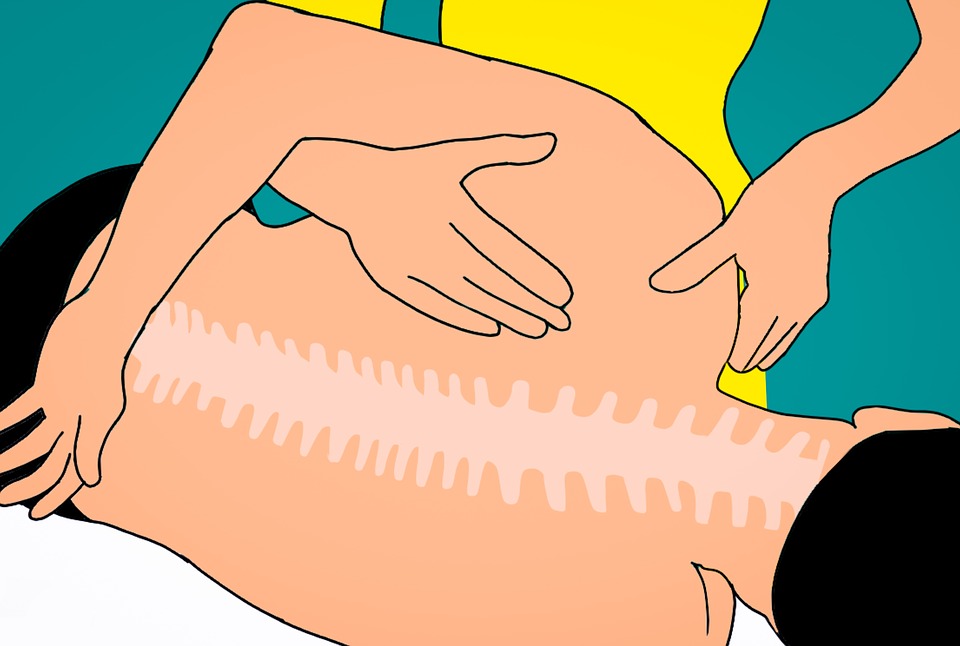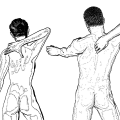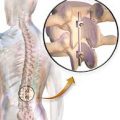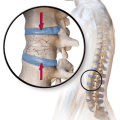Table of Contents
To answer your question, can I continue working with Degenerative Disc Disease? We have to first provide you with relevant information regarding this disease. Degenerative disc disease is a spinal disorder. It’s also commonly known as DDD. It affects the soft cushiony discs that are in between the vertebras of a human spine. These cushiony discs break down over time which results in various symptoms. Symptoms that affect most people include spinal inflexibility as well as muscle and nerve pain. These symptoms are also what most patients complain about because it’s really painful for them. In this article, you’ll learn the answer to your question, can I continue working with Degenerative Disc Disease?
Can I continue working with Degenerative Disc Disease? How DDD Affect Your Work
Aside from stiffness and pain, patients diagnosed with DDD usually experience lots of neurological symptoms such as loss of balance, tingling sensations, numbness and also muscle weakness.
The location of DDD can contribute to the severity of the symptoms that a person may feel. If for instance, you have DDD in the neck area, it will most likely cause headaches including other common symptoms. The day to day activities of patients with DDD can be severely limited. The pain that degenerative disc disease brings can be enough to prevent a person from doing physical and mental duties. This is true especially if your job requires some form of physical activity. The good news is that, if you can’t work due to DDD, you can qualify for the Social Security Disability program where you will receive some benefits.
Whether you can continue working or not, this degenerative disc disease can be determined by the degree of your spine’s degeneration especially if it involves muscles and nerves.
Degenerative Disc Disease and Physical Capacity
If you have usually worked in strenuous physical jobs wherein you have to frequently carry heavy loads or push and pull heavy materials, then you most likely can’t continue to work because it will be very painful for your back and muscles.
The pain in performing physical work is usually the most common limitation for people diagnosed with this disorder, but loss of flexibility is also another common complaint.
Loss of Motion
As DDD progresses, many patients feel like they’re having loss of motion in their spine area. You see, the area that’s affected in the spine becomes less flexible. Bending, twisting, stooping or twisting may become difficult to do.
Another common complaint is that patients can’s sit or stand for longer periods unlike before. This means that one’s ability to perform even the mundane of things like turning around or picking up something on the floor can be compromised.
Loss of Flexibility
Here’s the thing though, degenerative disc disease doesn’t always cause severe symptoms. This means that the severity of the condition will determine whether you can perform physical duties. It will highly depend on the kind of symptoms you experience and also how frequent they occur.
The severity of your pain caused by the DDD including loss of flexibility will be important factors on whether or not you will be able to maintain employment.
Degenerative Disc Disease and Mental Capacity
The symptoms of this disorder are generally physical, and it won’t affect one’s mental capacity. However, as with anything else, if there’s constant pain, it can still impact your ability to clearly think.
The loss of flexibility and the limitations that this disorder can bring can impact the everyday life of the patient. And for some people, it usually results to having depression.
Pain medications as well as muscle relaxers to treat the physical pain of DDD can also have side effects which could affect one’s mental capacity.
Discomfort from the pain can also cause sleep disruption which may affect one’s mental clarity as well as other cognitive problems.
Any of the above issues may ultimately result in various limitations that could prevent you from being effective in your normal day to day activities especially if in your job, you’re required to look for errors, make decisions or remember details.
How to Apply for Disability with Degenerative Disc Disease
As mentioned earlier, you can apply for a Social Security Disability if you’re officially diagnosed with degenerative disc disease, so that you can get benefits. The Social Security Administration will have to review your medical records and see if it fits into their listed conditions that are found in the so – called Blue Book.
Blue Book
The Blue Book is a manual used by DDS staff or Disability Determination Services. It contains various descriptions of conditions that can potentially result to a person being disabled.
The degenerative disc disease is found under the Musculoskeletal System section of the Blue Book, and under the heading, you will see a subsection entitles Disorders of the Spine.
The Social Security Administration recognizes that DDD is a condition that can cause disability. However, getting approval for the benefits with this disorder is quite challenging; particularly if you’re under 50 years old.
Get Help from a Social Security Attorney
One of the best ways for you to get health benefits is to seek the assistance of a lawyer. They will be a big help especially in compiling the medical records you need in order to prove your disability, and for you to get your health benefits. It’s also best to consider getting help once you apply for Social Security Disability from a lawyer or Social Security advocate. This is because it can increase the likelihood of you getting approved for certain benefits.
We hope we answered your question, can I continue working with Degenerative Disc Disease? Stay tune for more posts!






 I love to write medical education books. My books are written for everyone in an easy to read and understandable style.
I love to write medical education books. My books are written for everyone in an easy to read and understandable style.